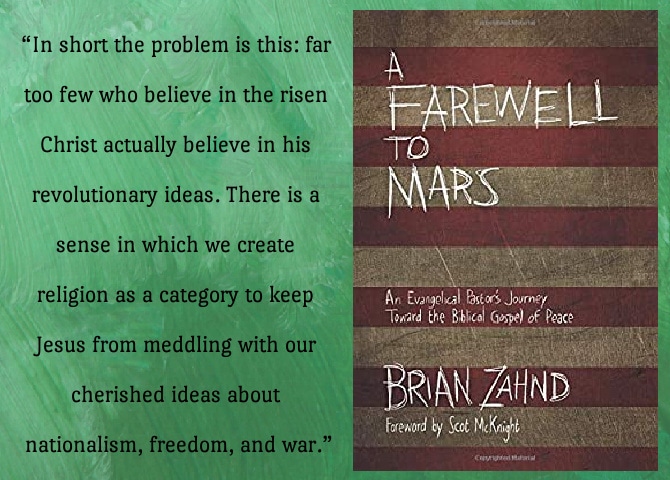Today’s book reviews include two thrillers I didn’t love, a novel I enjoyed much more than I’d expected, and a faith-related book that I can’t stop thinking about. Let’s get to the reviews!

The Wife Stalker, by Liv Constantine: Young and beautiful, Piper Reynard recently left behind a complicated and possibly sinister past in California, and is setting down roots with a new name and a new job at a wellness center in Westport, Connecticut. Piper also has her sights set on a new love interest: a successful lawyer named Leo Dracos. Never mind the wedding ring on Leo’s finger, or the fact that he has two young children, Stelli and Evie. Piper believes that no marriage is permanent and that she should be the only woman in Leo’s life.
Meanwhile, Joanna has been patiently sitting out Leo’s recent battle with depression, remaining loyal to the man who stole her heart years ago, and dedicating her time to meeting Leo, Stelli, and Evie’s every need. It isn’t long before Piper steals Leo away from her, and Joanna is ousted from the family she loves. Determined to reestablish herself in Leo’s and the children’s lives, Joanna begins to dive into Piper’s past and quickly finds that Piper is not at all who she has presented herself to be. But can Joanna convince Leo to leave Piper, before their newly minted marriage turns deadly?
This is a difficult book to review without giving too much away. For the first three quarters of the book, I had trouble getting a real feel for the characters and grew increasingly frustrated with the their horrible (and often nonsensical) behavior. I began to wonder how this qualified as suspense because the story’s trajectory seemed pretty straightforward. But an important twist near the end of the book completely caught me off guard (in the very best of ways), and the pieces of this odd story began to make sense. I really did love this ending, but it didn’t entirely make up for the confusion and frustration I experienced earlier in the book.
This is the second title I’ve read from these coauthors; the first (The Last Mrs. Parrish) starts similarly, but don’t worry: the characters and setup of The Wife Stalker might be familiar, but ultimately this is a very different book. If you are a fan of domestic suspense with unreliable narrators and adults behaving badly, and are willing to put up with some mediocre writing for the sake of a strong gotcha! moment, The Wife Stalker will not disappoint.
My Rating: 3.5 Stars. (Rounded down to 3 stars on Goodreads)

A Willing Murder, by Jude Deveraux: Sara Medlar is a retired romance novelist living Lachlan, Florida, in an old mansion she is remodeling with her young housemate/surrogate grandson, Jack. When Sara’s estranged niece Kate takes a real estate job in Lachlan, Kate moves in with Sara and Jack. Shortly after Kate’s arrival, the three housemates stumble upon the skeletons of a mother and daughter who were thought to have run away from town decades earlier.
The discovery is followed by a succession of crimes, indicating that someone is eager to leave the double murder in the past. But Kate, Jack, and Sara cannot let the crime go unsolved and they bond over their united goal of solving the mystery—even if it means uncovering some unsavory details from their own pasts.
This was my first Jude Deveraux novel and to be honest, I was pretty disappointed. The premise is decent but I figured out the mystery almost immediately, and grew annoyed with our protagonists’ failure to do so. The writing is very amateurish, the dynamic between Kate, Sara, and Jack is awkward and forced, and the characters’ bizarre dialogue and actions distract from the story. I also grew tired of reading about Sara and Kate’s highly disordered eating habits, with food repeatedly being referred to as sinful and forbidden. Unfortunately I don’t think I will be continuing with this series.
My Rating: 2.5 Stars. (Rounded down to 2 stars on Goodreads)

The Lager Queen of Minnesota, by J. Ryan Stradal: Sisters Edith and Helen were never close, and the loose ties between them are irrevocably severed when their father dies, leaving the entirety of their shared inheritance to Helen. Edith goes on to make a relatively happy life for herself, raising a family with a husband she adores and eking out a living making award-winning pies for a local nursing home. Meanwhile, Helen uses her inheritance to start one of the most successful breweries in the nation.
Decades after the sisters’ split, Edith’s granddaughter Diane has taken an interest in beer (an interest not shared by her grandmother) and earns a shot at starting a brewery of her own. For these three women—Diane, Helen, and Edith—beer and midwestern sensibilities are all a way of life. But are these shared interests enough to bring the fractured family back together?
I couldn’t care less about beer and have very little familiarity with the midwest, but numerous positive reviews of this book lured me in, and I’m so glad that they did. This is a heartwarming story of perseverance, family, and the pursuit of dreams big and small. Though the three woman at the heart of the novel all experience pain and grief, the story is ultimately an inspiring tale of hope and redemption. The book is imbued with a lovely balance of humor and heartbreak, and the characters are realistically complex yet easy to root for. Each woman is strong in her own way, and each faces difficult decisions with courage and conviction—something I admire in a protagonist (and in real life too!). I enjoyed the glimpse into midwestern culture (with its politeness, hospitality, and potlucks) and even found the brewery factoids interesting.
My Rating: 4 Stars.

A Farewell to Mars: An Evangelical Pastor’s Journey Toward the Biblical Gospel of Peace, by Brian Zahnd: As Christians we are called to be peacemakers. But what does that look like? And are we—as Christian Americans—doing a good job of living up to this descriptor? Our alignment with the militarism that defines the political ethos of America would indicate that we are more concerned with violent vengeance than with being peaceful ambassadors. In Farewell to Mars, pastor Brian Zahnd highlights the ways in which our celebration of war and violence (represented here by Mars, the Roman god of war) is misaligned with the message of the Gospel. Zahnd himself was once a passionate supporter of the American war machine, and his words serve as a form of confession and repentance as he takes a strong stand for peace in the name of Jesus.
This compact volume stands in stark contrast to popular culture and beliefs, and to be honest, I struggled with quite a bit of the content simply because it isn’t a message we hear very often. I have a hard time getting behind Zahnd’s seeming prioritization of pacifism above all else: I agree that peace should be a component of following Jesus, but love must take priority—and love sometimes does require a more assertive (and even violent) stance. However, it’s difficult to argue with Zahnd’s depiction of a peaceful Christ who invites us to a world of non-violence and love, and if we are to err in either direction, I personally would rather err to the side of peace.
My favorite aspect of this book—one that gets almost zero discussion in modern Christian circles—is its focus on the ways that Jesus is more than just a “ticket to Heaven”: in His life, death, and resurrection, He ushered in a new Kingdom for us TODAY. Zahnd writes, “If Jesus of Nazareth had preached the paper-thin version of what passes for the ‘gospel’ today — a shrunken, postmortem promise of going to heaven when you die—Pilate would have shrugged his shoulders and released the Nazarene, warning him not to get mixed up in the affairs of the real world.” I appreciate this reminder of the unappreciated power of the Gospel, its implications for our lives, and what it means for how we conduct ourselves on both personal and global levels.
A Farewell to Mars does not provide a fail-proof argument for nonviolence and fails to address many questions that I (and I’m sure many other Christian readers) have about the efficacy and practicality of his stance. Rather, this is one pastor’s explanation of how and why he had such a powerful change of heart, and his words have me thinking much more critically about my personal perspective on what it looks like to be a co-laborer with the Prince of Peace.
My Rating: 4 Stars.

I’ll have five more book reviews headed your way next Monday!